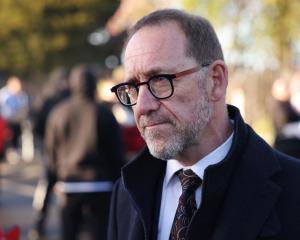
But in court yesterday, the police sergeant who led the search during the airborne assault on Dotcom's mansion could not point to evidence to support claims officers risked injury or death arresting the tycoon.
The hearing was part of the Crown bid to overturn a finding that invalid search warrants were used in the raid on Dotcom's Coatesville mansion.
The officer's admission came after Dotcom's lawyer Paul Davison, QC, probed the police process which led to the involvement of the special tactics group.
The January 20 raid followed an FBI request for help with its global investigation into alleged copyright violation by Dotcom's Megaupload filesharing company.
Dotcom earlier told the High Court in Auckland he would have co-operated with police if asked.
Mr Davison led the special tactics group [STG] sergeant, whose name was suppressed, through a check-box threat assessment which led to the assault team being used in the raid.
The "yes" box was ticked next to questions about whether Dotcom was armed, had a history of violence, was showing current signs of violence and had issued threats to kill.
Mr Davison said the police documents also claimed officers faced the threat of injury or death if the specialist squad was not used.
But under questioning, the sergeant was unable to point to any information supporting the claim police officers were in danger during the raid.
Asked if the answers on the form would be "seriously misleading" if shown to be wrong, the officer agreed but said they had to be taken in the context of other information.
He said other elements raising the threat level included a photograph of Dotcom holding a shotgun, the expertise of his bodyguard and concern about destruction of evidence.
Dotcom's wealth was also considered a risk element because it meant the tycoon could buy items he liked, which might include guns.
The operation was overseen by Detective Inspector Grant Wormald of the Organised Financial Crime Agency, whose request to involve the STG was dated January 9.
The officer said the first STG briefing did not take place until January 17 when Mr Wormald outlined the operation.
The formal document which led to the STG being involved might not have been received until January 18.
Mr Davison said the form had noted the source of intelligence was visits to the area and a two-year investigation by the FBI.
He then pointed to the section on the form which said the information had been verified by the STG's "intelligence team".
The officer said that, contrary to the form, the intelligence team had not checked the briefing report.
The officer also answered questions about the protocol for bringing the STG into a police operation. The process was available to all police and showed STG involvement needed to be approved up the chain of command before final approval at headquarters.
Mr Davison pointed to the time the forms were signed, showing assistant commissioner Malcolm Burgess approved the involvement of the STG before Mr Wormald, who was overseeing the operation, had signed the form.
"It appears to have been signed off before the request was completed and signed off by Detective Inspector Wormald," said Mr Davison.
The officer was also asked about a secret recording made by the local community constable on a visit to Dotcom's home the day before the raid.
The sergeant said elements of the video recording had been used to plan the operation, but STG staff were not shown a part of the recording featuring a VIP protection squad member normally charged with protecting the Prime Minister and dignitaries.
The man, believed to be working for the police, was filmed saying Dotcom was "no threat, that he was a good guy", said Mr Davison.
The sergeant confirmed notes from the initial planning discussion with the STG commander saying an airborne assault was "over the top for fraud".
- David Fisher, New Zealand Herald












